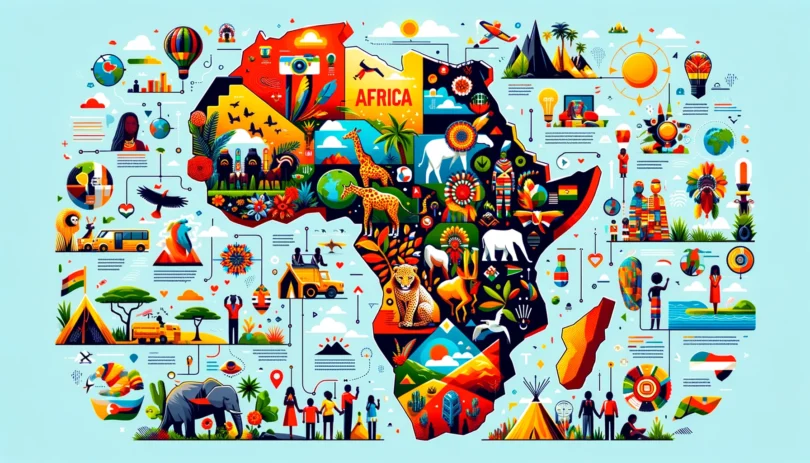Explore the reality behind common myths about Africa, shedding light on the continent’s diverse cultures, economies, and landscapes. This article debunks popular misconceptions, presenting a more accurate picture of Africa.
Welcome to an insightful exploration aimed at debunking some of the most pervasive myths about Africa. Often misrepresented in global narratives, Africa’s diverse continent is much more than the stereotypes and simplistic views held by many. From its economic landscape to its cultural richness and environmental diversity, join us as we uncover the truth behind common misconceptions.
Table of Contents
Table of Contents
- Myth 1: Africa is a Country
- Myth 2: Africa is Largely Underdeveloped
- Myth 3: Wildlife is Everywhere in Africa
- Myth 4: African Languages are Widely Spoken
- Myth 5: Africa is Always Hot
- Q&A Section
- Conclusion
Myth 1: Africa is a Country
One of the most common myths about Africa is the misconception that it is a single country. In reality, Africa is the world’s second-largest continent, comprising 54 diverse countries. Each African nation has its own unique cultures, languages, and governments, contributing to the continent’s rich diversity and complexity. Understanding this fundamental fact is crucial to appreciating Africa’s global significance and the distinct identity of each African country.
Myth 2: Africa is Largely Underdeveloped
Another widespread myth is that Africa is largely underdeveloped and lacking modern infrastructure. While challenges exist, many African countries have thriving economies, modern cities, and advanced technologies. Nations like Nigeria, South Africa, and Kenya are examples of economic powerhouses with booming tech industries, robust financial sectors, and cutting-edge urban centers. This myth overlooks the significant progress and development achieved across the continent.
Myth 3: Wildlife is Everywhere in Africa
While Africa is home to some of the world’s most iconic wildlife and breathtaking natural reserves, the idea that wild animals roam freely across all parts of the continent is a misconception. Urban areas, bustling cities, and industrial regions coexist with natural landscapes. Protected parks and reserves like the Serengeti, Kruger National Park, and Maasai Mara are designated areas where wildlife thrives, separate from human settlements.
Myth 4: African Languages are Widely Spoken
It is often believed that there are only a handful of languages spoken across Africa. In truth, the continent is a linguistic mosaic, with over 2,000 distinct languages. Countries like Nigeria alone boast over 500 languages, highlighting the cultural and linguistic diversity that defines Africa. While many Africans are multilingual, speaking local languages alongside colonial languages such as English, French, and Portuguese, the linguistic landscape is far more complex than commonly thought.
Myth 5: Africa is Always Hot
The stereotype that Africa is always hot fails to account for the continent’s vast geographical diversity. Africa’s climate ranges from tropical rainforests and humid savannas to arid deserts and snow-capped mountains. Regions like the Sahara Desert experience extreme heat, whereas the highlands of Ethiopia and the peaks of Mount Kilimanjaro can be quite cold, with snowfall being a regular occurrence.
Also Read: American Rapper Rick Ross to climb Africa’s highest peak, Mt. Kilimanjaro
Q&A on Myths about Africa
Is Africa’s economy solely dependent on agriculture?
No, while agriculture is a significant sector, Africa’s economy is diverse, including manufacturing, services, technology, and mining. Countries like South Africa and Nigeria have substantial industrial and tech sectors.
Are all African countries experiencing political instability?
No, this is a misconception. Many African countries enjoy stable governance and are making strides in democratic practices and economic reforms. Instances of political instability are not exclusive to Africa and do not define the continent as a whole.
Conclusion
Debunking these myths about Africa is essential to foster a more accurate and respectful understanding of the continent. Africa’s diversity in cultures, economies, climates, and languages makes it a rich and dynamic global player. Moving beyond stereotypes and embracing the complexities of Africa can lead to more meaningful engagements and opportunities for collaboration. Let’s celebrate Africa for what it truly is—a continent of immense potential, resilience, and vibrancy.








